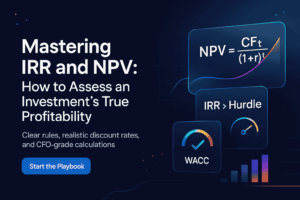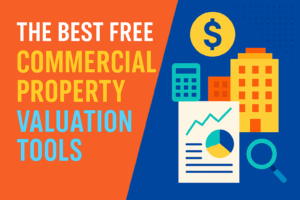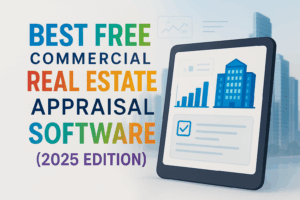Are you looking to maximize your return on investment (ROI) in real estate? Look no further! In this comprehensive guide, we will introduce you to the best real estate investing software available that will help you boost your profits and streamline your business operations.
Investing in real estate can be lucrative, but it’s essential to have the right tools and strategies in place to succeed in this competitive industry. With the advancement of technology, real estate investing software has become an indispensable asset for investors of all experience levels.
By leveraging the power of these software solutions, you can streamline your property management, analyze market trends, identify the most profitable deals, and make data-driven investment decisions. Whether you’re a seasoned investor or just starting, finding the right software can make all the difference in boosting your ROI.
In this guide, we will explore the top real estate investing software options available, highlighting their features, benefits, and how they can maximize your profits. Get ready to take your real estate investments to the next level with the best software tools at your disposal.
Benefits of using real estate investing software
Real estate investing software offers a wide range of benefits for investors looking to enhance their ROI. Here are some key advantages:
1. Efficient Property Management: One of the significant benefits of using real estate investing software is its ability to streamline property management tasks. From rent collection to maintenance requests, these software solutions automate and simplify various processes, saving you time and effort.
2. Data-Driven Decision Making: Real estate investing software provides access to valuable data and analytics, allowing you to make informed investment decisions. These tools offer comprehensive property performance reports, and predictive analytics, enabling you to identify the most profitable opportunities.
3. Improved Financial Management: Keeping track of finances is crucial in real estate investing. With the right software, you can easily manage income and expenses, track rental payments, generate financial reports, and monitor cash flow. This level of financial visibility helps you make smarter investment decisions and maximize your ROI.
4. Enhanced Communication and Collaboration: Real estate investing software often includes features that facilitate communication and collaboration with tenants, property managers, and other stakeholders. From automated messaging to document sharing, these tools streamline communication and ensure everyone stays on the same page.
5. Time-Saving Automation: Real estate investing software automates various time-consuming tasks, such as tenant screening, lease generation, and maintenance scheduling. By eliminating manual processes, you can free up valuable time to focus on strategic decision-making and growing your real estate portfolio.
Key features to look for in real estate investing software
When selecting a real estate investing software, it’s crucial to consider the key features that will best suit your investment needs. Here are some essential features to look for:
1. Property Management: A robust property management module is essential for efficiently managing your real estate portfolio. Look for features such as rent collection, lease management, maintenance tracking, and tenant communication.
2. Market Analysis: Comprehensive market analysis tools help you evaluate potential investment opportunities. Look for software that provides data on market trends, property values, rental rates, and vacancy rates.
3. Financial Management: Ensure the software includes features for forecasting income and expenses, generating financial reports, and monitoring cash flow. Look for integration with accounting software’s like excel for seamless financial management.
4. Document Management: Look for software that allows you to store and manage important documents, such as lease agreements, contracts, and tenant information. Easy access to these documents saves time and ensures compliance.
5. Reporting and Analytics: Robust reporting and analytics capabilities are crucial for data-driven decision-making. Look for software that provides customizable reports, performance metrics, and predictive analytics.
Types of real estate investing software
Real estate investing software comes in various types, each catering to specific needs and preferences. Here are the most common types:
1. Property Management Software: This type of software focuses on streamlining property management tasks, such as rent collection, maintenance tracking, and lease management. It is ideal for investors with a large real estate portfolio.
2. Real Estate CRM Software: CRM (Customer Relationship Management) software helps investors manage leads, track communication, and nurture relationships with potential buyers and sellers. It is especially useful for real estate agents and brokers.
3. Real Estate Analytics Software: This type of software provides comprehensive market analysis and predictive analytics. It helps investors identify profitable opportunities, evaluate property performance, and make data-driven investment decisions.
4. Real Estate Investment Analysis Software: Investment analysis software assists investors in evaluating potential deals by analyzing cash flow, return on investment, and property valuation. It helps investors determine the profitability and feasibility of an investment.
5. Real Estate Portfolio Management Software: Portfolio management software allows investors to track and manage their real estate investments in one centralized platform. It provides an overview of performance, financials, and market trends for the entire portfolio.
Top real estate investing software options
1. Compass: Your ultimate real estate partner for analytics, forecasting, and underwriting. With cutting-edge cash flow analysis, precise predictive forecasting, and advanced financial modeling tools, Compass equips investors to uncover lucrative opportunities and optimize ROI across single-family, development, or commercial properties. Its impeccable customer service and pay-as-you-need-it business model make Compass affordable for investors of any size.
2. Hubspot: As one of the leading real estate CRM software options, Hubspot helps investors streamline lead management, automate communication, and track deals. It offers advanced features such as lead scoring, email marketing integration, and mobile app accessibility, making it a popular choice for real estate investors and brokers.
3. DoorLoop: If you’re looking for a centralized platform to manage your real estate portfolio, DoorLoop is worth considering. It provides a comprehensive overview of your investments, including performance metrics, financials, and accounting services. With its customizable dashboards and reporting capabilities, DoorLoop helps investors stay organized and make strategic decisions.
How to choose the best real estate investing software for your needs
Choosing the best real estate investing software for your needs requires careful consideration. Here are some factors to consider:
1. Define Your Goals: Clearly define your investment goals and determine the specific features and functionality you require. This will help you narrow down your options and select software that aligns with your objectives.
2. Consider Scalability: If you plan to expand your real estate portfolio in the future, choose software that can scale with your business. Ensure it can handle increasing property volumes, tenant numbers, and financial complexity.
3. Ease of Use: Look for software that is user-friendly and intuitive. A steep learning curve can hinder adoption and efficiency. Consider software with a clean interface, comprehensive documentation, and responsive customer support.
4. Integration Capabilities: If you already use other software tools for accounting, marketing, or property listing, ensure that your real estate investing software integrates seamlessly with these systems. This will streamline your workflows and avoid duplicate data entry.
5. Read Reviews and Seek Recommendations: Read reviews from other investors and seek recommendations from industry professionals. Their experiences and insights can provide valuable information to help you make an informed decision.
Real estate investing software implementation and integration
Implementing real estate investing software requires careful planning and execution. Here are some best practices to ensure a smooth implementation:
1. Set Clear Objectives: Clearly define your implementation goals and communicate them to your team. Ensure everyone understands the purpose and benefits of the software.
2. Train Your Team: Provide comprehensive training to your team members to ensure they understand how to use the software effectively. This includes training on specific features, workflows, and best practices.
3. Data Migration and Integration: If you are transitioning from existing software or spreadsheets, plan the migration process carefully. Ensure that data is transferred accurately and integrated with other systems as needed.
4. Test and Optimize: Conduct thorough testing of the software before fully implementing it. Identify any issues or areas for improvement and work with the software provider to address them.
5. Monitor and Evaluate: Continuously monitor the performance and effectiveness of the software. Regularly evaluate its impact on your ROI and make adjustments as necessary.
Real estate investing software pricing and affordability
The pricing of real estate investing software varies depending on the provider, features, and subscription plans. Here are some common pricing models:
1. Monthly Subscription: Many software providers offer monthly subscription plans, where you pay a fixed fee per month based on the number of users. This model is ideal for investors with a smaller portfolio or those who prefer a flexible payment structure.
2. Annual Subscription: Some software providers offer annual subscription plans, where you pay a lump sum upfront for a year of access. This model often comes with a discounted rate compared to monthly subscriptions.
3. Per-Property Fee: Certain software providers charge a fee per property, regardless of the number of users. This model is suitable for investors with a smaller number of high-value properties.
4. Custom Pricing: For larger real estate portfolios or enterprise-level needs, software providers may offer custom pricing based on your specific requirements. This model allows for more tailored features and scalability.
When evaluating pricing, consider not only the initial cost but also the value provided and the potential ROI. Look for software that offers a balance between affordability and functionality.
Real estate investing software reviews and user experiences
Before making a final decision on real estate investing software, it’s essential to review user experiences and read testimonials. Here are some ways to gather insights:
1. Online Reviews: Visit reputable review platforms and read user reviews for the software options you are considering. Pay attention to both positive and negative feedback to gain a balanced perspective.
2. Industry Forums and Communities: Join real estate investing forums and communities to engage with other investors. Seek recommendations and ask for personal experiences with specific software solutions.
3. Ask for References: Reach out to the software providers and ask for references from existing customers. Contact these references to learn more about their experiences and the benefits they have gained from using the software.
By gathering insights from real users, you can make a more informed decision and choose the software that best meets your needs and expectations.
Conclusion and final thoughts
Boosting your ROI in real estate investing requires the right tools and strategies. With the best real estate investing software at your disposal, you can streamline your operations, make data-driven decisions, and maximize your profits.
In this comprehensive guide, we explored the benefits of using real estate investing software, key features to look for, different types of software available, and the top options in the market. We also discussed how to choose the best software for your needs, implementation best practices, pricing considerations, and the importance of user reviews.
Now armed with this knowledge, it’s time to take action and leverage the power of real estate investing software to grow your portfolio and boost your ROI. Take the first step today and explore the options available to you. Your future success in real estate investing awaits!













